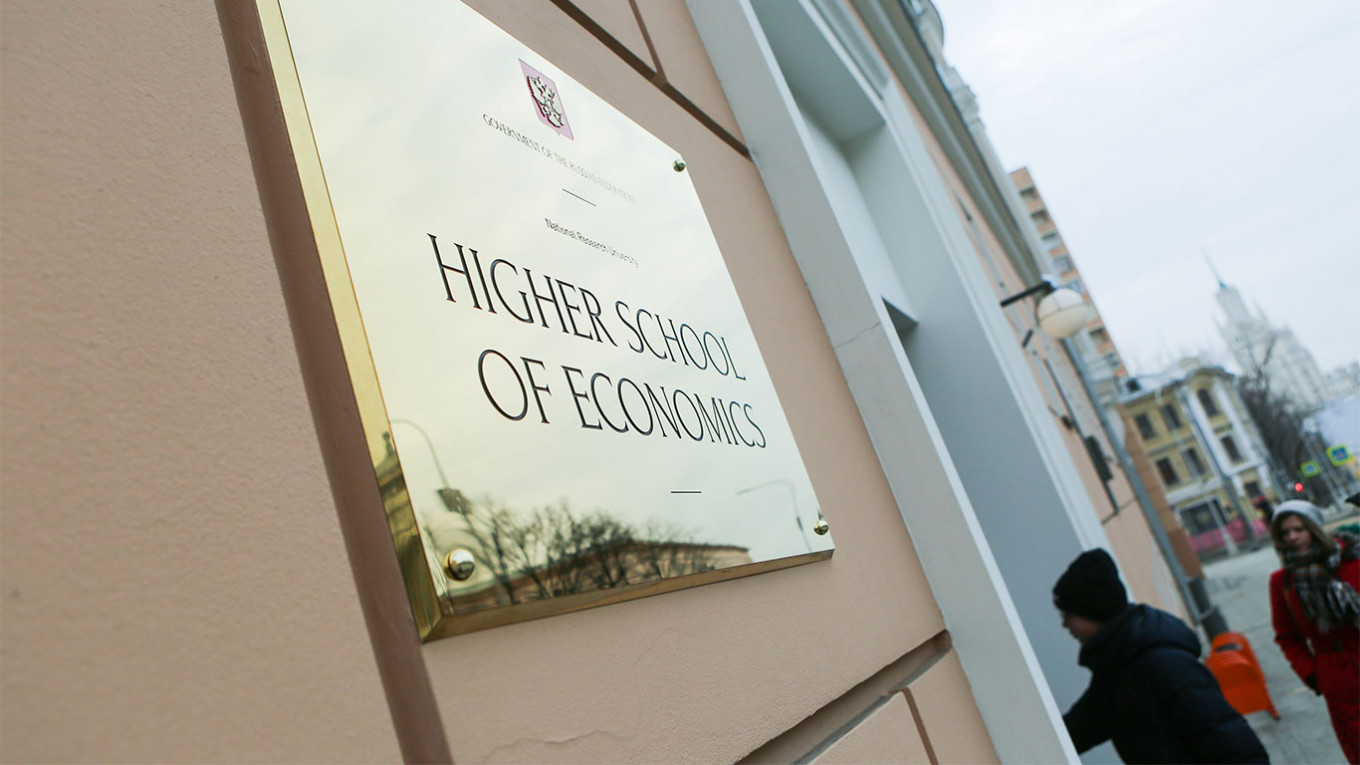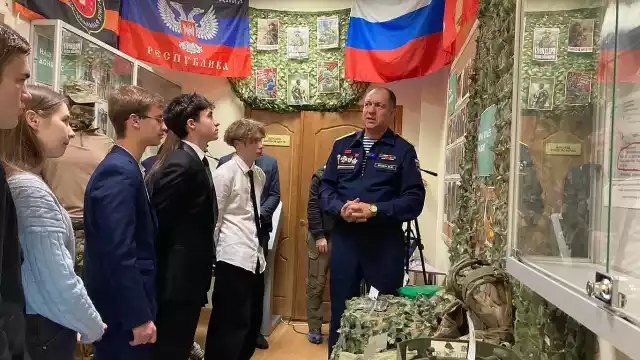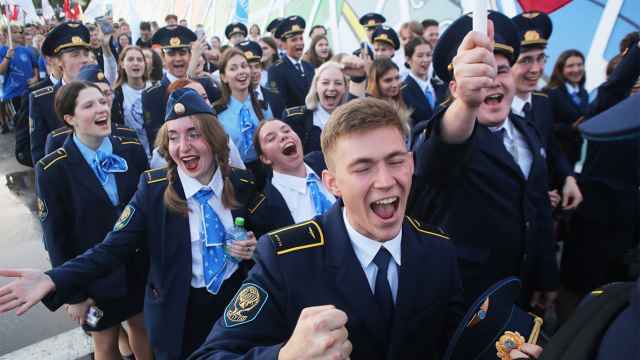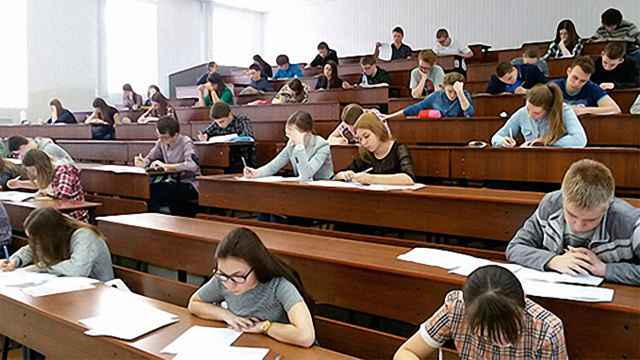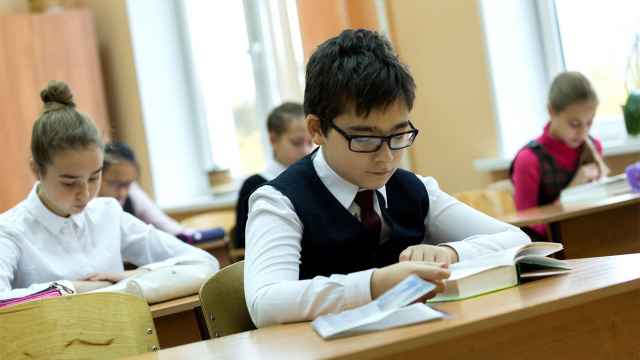Moscow’s prestigious Higher School of Economics (HSE) announced Thursday that it will pay for the education of those who fight in Ukraine and their family members.
One of Russia’s top-ranked universities, HSE had long been seen as a bastion of liberal values. But in recent years, the university has increasingly aligned itself with the Kremlin’s positions.
Starting in the upcoming academic year, returning war veterans will be admitted to HSE programs with their tuition fully paid from the university’s budget, the state-run TASS news agency cited HSE’s statement as saying.
HSE will also pay the tuition of children, spouses and siblings of military personnel who have taken part in the war.
Students who are already enrolled on a paid basis will have the option to transfer to university-funded tuition, it said.
The university said it plans to admit a higher share of war participants and their children to its incoming class than the 10% admission quota set by President Vladimir Putin for all Russian universities last year.
The decision was made by HSE rector Nikita Anisimov, who was one of 300 university officials to have signed an open letter in support of the Kremlin’s military campaign in Ukraine.
Russia’s lower-house State Duma previously proposed admitting Ukraine war veterans to universities without requiring entrance exams.
In her proposal, the head of the State Duma’s family affairs committee, Nina Ostanina, argued that the initiative would help those who return from the war to re-adjust to civilian life.
The Science and Higher Education Ministry has also recommended that Russian higher education institutions provide financial aid to students who take part in the war or their family members.
In May 2022, Putin signed a decree requiring universities to allocate 10% of their state-funded places for the children of war participants.
Yet only 146 children of war participants enrolled at Moscow State University for the school year starting last fall, which had allocated 408 spaces for them. At the Russian State Humanities University, 110 students enrolled out of 150 state-funded places allocated, while 173 students enrolled for 266 places allocated at HSE.
The Moscow Institute of Physics and Technology (MIPT) reported receiving only two applications from children of military personnel.
A Message from The Moscow Times:
Dear readers,
We are facing unprecedented challenges. Russia's Prosecutor General's Office has designated The Moscow Times as an "undesirable" organization, criminalizing our work and putting our staff at risk of prosecution. This follows our earlier unjust labeling as a "foreign agent."
These actions are direct attempts to silence independent journalism in Russia. The authorities claim our work "discredits the decisions of the Russian leadership." We see things differently: we strive to provide accurate, unbiased reporting on Russia.
We, the journalists of The Moscow Times, refuse to be silenced. But to continue our work, we need your help.
Your support, no matter how small, makes a world of difference. If you can, please support us monthly starting from just $2. It's quick to set up, and every contribution makes a significant impact.
By supporting The Moscow Times, you're defending open, independent journalism in the face of repression. Thank you for standing with us.
Remind me later.


